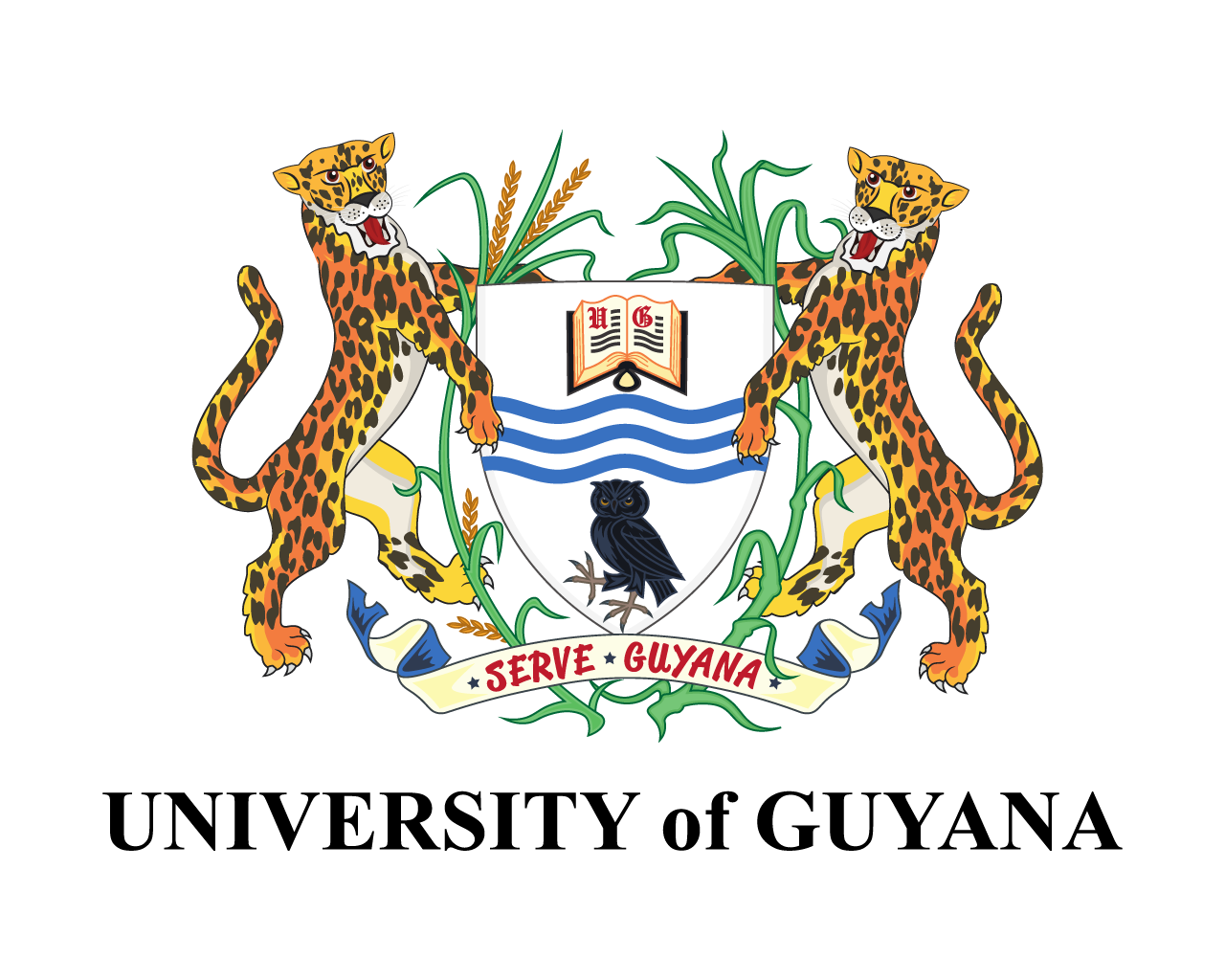
PRESS RELEASE: UG Opens Pioneering Institute for Marine and Riverine Ecologies and Economies at Berbice Campus
Thursday, August 15, 2024 - 15:31UG Opens Pioneering Institute for Marine and Riverine Ecologies and Economies at Berbice Campus
The University of Guyana, recently officially declared open its Institute for Marine and Riverine Ecologies and Economies (IMAREE) which will play a pivotal role in advancing research, education, and innovation in marine and riverine ecosystems, further aligning the University’s efforts with national and global sustainable development priorities.
The simple, but significant ceremony was held on Monday, 12 August 2024, at the university’s John’s Sciences Centre, Corentyne, Berbice, and saw the attendance of several representatives from the Government, Parliamentary Opposition, private and public sectors, academic community, among others.
UG’s Vice-Chancellor Professor Paloma Mohamed Martin delivering her opening remarks at the Launch of IMAREE at John’s Sciences Centre, Corentyne, Berbice
Vice-Chancellor Prof. Paloma Mohamed Martin, in her remarks, emphasised the University’s commitment to sustainable development. The VC highlighted that IMAREE will be instrumental in addressing the critical labour shortages in the maritime and marine sectors and outlined the University’s ambitious goal to graduate between 500 and 700 students over the next four years in high-demand fields such as marine biology, maritime law, engineering, marine biotechnology, and port security and management.
Prof. Mohamed Martin also noted the unique positioning of IMAREE as the only institution in the world that integrates rivers, oceans, coastal work, and ecologies with the study of their associated economics. This approach, she stated, is essential for creating solutions tailored to the complex challenges facing these vital ecosystems.
According to the VC, the decision to establish IMAREE at the Berbice Campus was driven by the need to revitalise enrolment at that location, among other factors. She further noted that the campus’s proximity to Suriname and French Guiana makes it an ideal location for such a significant initiative.
UG’s Chancellor Prof. Edward Greene noted that the setting up of the institute is a timely initiative designed as a multidisciplinary approach to training and educating Guyana’s next generation of environmental scientists which is critical to fulfilling the aspirational goals of Guyana’s Low Carbon Development Strategy. “I am sure that in pursuit of this national achievement, the CARICOM Region as a whole will also benefit from this innovative academic and entrepreneurial hub. It is indeed a formidable collaborative venture for stimulating active biotech research with a focus on the bountiful prospects of our rivers,” Chancellor Greene noted.
Minister of Natural Resources, Hon. Vickram Bharrat delivering remarks at the Launch of IMAREE at John’s Sciences Centre, Corentyne, Berbice
Minister of Natural Resources, Hon. Vickram Bharrat, commended the University of Guyana for the timely and necessary launch of IMAREE. He noted that the institute would significantly enhance both economic growth and conservation efforts, with its programmes being ideally suited to Guyana's burgeoning economy. The Minister urged prospective students to consider studies in pure sciences and technology, emphasising the growing need for expertise in these areas as the country continues its rapid development.
Minister of Public Works, Hon. Juan Edghill remarks at the Launch of IMAREE at John’s Sciences Centre, Corentyne, Berbice
Minister of Public Works, Hon. Juan Edghill, also praised the University for its visionary initiative, expressing his admiration for the goals and objectives of IMAREE. He underscored the importance of disciplines such as port management, risk assessment, and health and safety in shaping the future of Guyana’s economic landscape.
Director of IMAREE, Mr Calvin Bernard
Deputy Director of IMAREE, Mr Phillip DaSilva
Director, Mr Calvin Bernard and Deputy Director, Mr. Phillip DaSilva, provided an overview of IMAREE and the work it will do. It was noted that the institute’s mandate is comprehensive, encompassing collaboration with national and international partners to bridge existing gaps in the understanding and management of marine and riverine ecosystems. The institute’s expansive geographical focus includes Guyana’s marine spaces, river basins, estuarine areas and the associated coastal and riparian zones. Critical issues such as hydrology, geomorphology, biodiversity, biogeochemical cycling, infrastructure, human settlements, climate change, and pollution will be addressed through a transdisciplinary, systems-based approach.
The Institute will operate within three primary functional areas: education and training, research and innovation, and advisory and consultancy services. Its academic offerings will include a range of undergraduate and graduate programmes, alongside specialised training for professional certification and customised courses. IMAREE will employ modular and micro-credentialing models, allowing students to scale their credentials from individual courses to full degrees, providing much-needed flexibility in education.
IMAREE’s research agenda will focus on six key areas: marine and riverine biodiversity, ecology, and pollution; marine engineering, computing, and robotics; marine and riverine governance, jurisprudence, and policy; economics, tourism, and transportation; ports management, security, and preservation; and aquatic pharmaceuticals and nutraceuticals. These areas are designed to address a broad spectrum of issues crucial to the health and sustainability of marine and riverine ecosystems.
To meet its educational mandate, IMAREE will offer a robust portfolio of degree programmes. These include Bachelor of Science degrees in Marine Biology, Port Management, Port Security, Marine Transportation, Marine Engineering, and Coastal, Riverine, and Ocean Management. Additionally, the Institute will offer a Postgraduate Diploma in Maritime Law, Master’s Degrees in Maritime Law and Marine BioPharma, and a Bachelor’s Degree in Marine BioPharma. These programmes are tailored to equip students with the knowledge and skills necessary for success in the rapidly evolving fields of marine and riverine studies.
Deputy Vice Chancellor for Academic Engagement, Prof. Emanuel Cummings, Director of UGBC, Prof. Gomathinyagam Subramanian and Building Donor, Nand Persaud Group of Companies’ Chief Executive Officer Mr. Mohindra Persaud also underscored the important work the institute will do in terms of its efforts to achieve the sustainable development goals.
Partners from the Maritime Administration Department, Fisheries Department, Conservation International - Guyana, Caribbean Maritime University, Guyana Marine Conservation Society, University of Trinidad and Tobago - Marine and Maritime Campus and the World Wide Fund for Nature congratulated the university for its visionary approach to sustainable development and pledged their commitment to continue to collaborating on the relevant issues affecting the various related sectors.
Please see video for full ceremony here: https://youtu.be/trMe7VgXzBA
